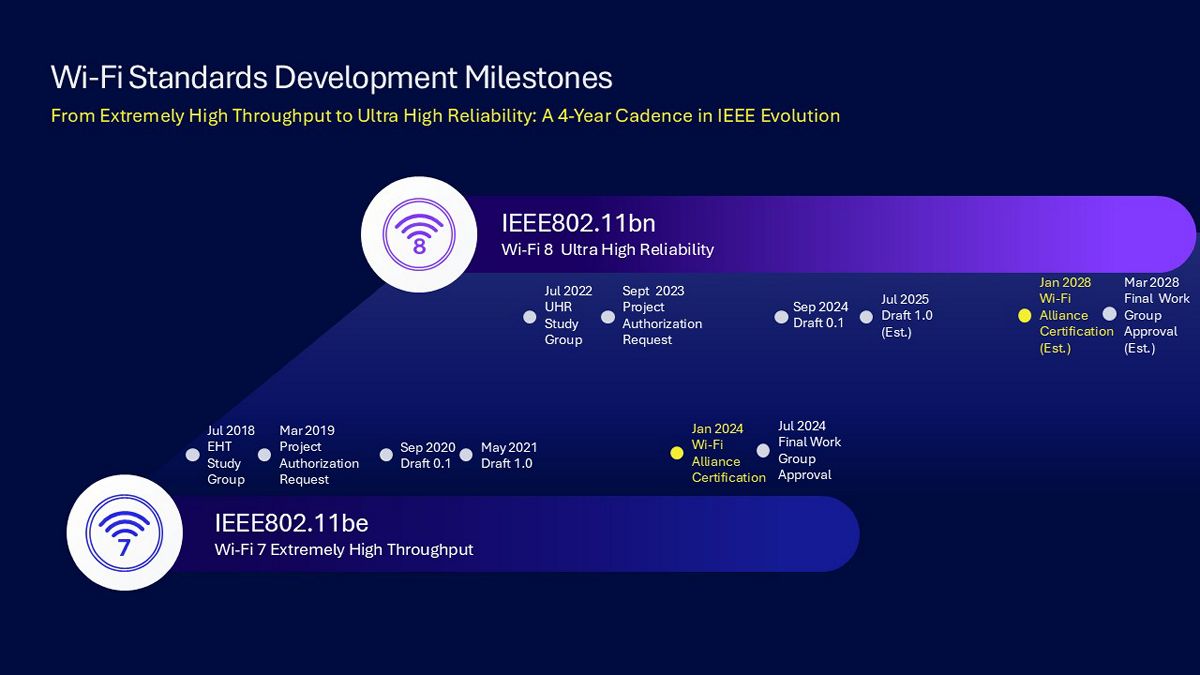

Wi-Fi 8 will bring several improvements to performance and reliability, including multi-access point coordination and seamless roaming, according to Qualcomm. The next wireless standard is currently being developed as part of the ‘Ultra High Reliability’ (UHR) initiative, in collaboration with various firms, including the US chipmaker. The standard for Wi-Fi 8 is not expected to be finalised until 2028, but Qualcomm has already revealed improvements to reliability of wireless networks that are expected to arrive with Wi-Fi 8.
Wi-Fi 8 to Improve Reliability of Networks With Seamless Roaming, Lower Latency
Citing the IEEE scope document, Qualcomm says that Wi-Fi 8 will offer improvements such as lower latency at P95, higher throughput in congested areas, and improved roaming between access points. Wi-Fi 8 will also improve peer-to-peer (P2P) communication, while enhancing power efficiency and offering “wired grade” reliability.
The anticipated timeline for the next Wi-Fi standard
Photo Credit: Qualcomm
Wi-Fi 7 (IEEE802.11be), the latest Wi-Fi networking standard, already offers several performance improvements over Wi-Fi 6, including faster transmission rates and features like flexible channel utilisation. It was developed under the Extremely High Throughput (EHT) initiative, focused on improving indoor and outdoor operation.
Meanwhile, Qualcomm says that the UHR initiative is focused on improving the reliability of wireless networks, while Wi-Fi 7 and Wi-Fi 6 delivered better performance and efficiency, respectively. The chipmaker also highlights new types of wireless devices that are expected to be widely used over the coming years, including augmented reality (AR) glasses and other wearables. Qualcomm, Samsung, and Google are also working on a pair of AR glasses.
Five key areas where Wi-Fi 8 is expected to offer more reliable network performance include moving across multiple access points (seamless roaming), more power efficiency go access points and client devices, better coexistence with other wireless protocols, improved edge performance, as well as coordination in high-density areas.
The IEEE802.11bn standard is still in development, and it is only expected to be finalised in March 2028. However, both Qualcomm and MediaTek have touted the benefits of Wi-Fi 8 networks, and their efforts to contribute to the upcoming wireless standard, which is likely to be supported by upcoming devices by the end of the decade.



